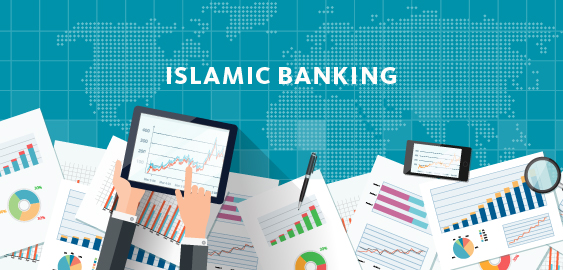Islamic Banking Career Opportunities in Pakistan Scope, Jobs, and Requirements Salary guidelines for admissions, programs, professional training plans, and income information to start and select the Islamic banking industry in Pakistan. Islamic banking—also referred to as non-interest banking—is a type of banking that is founded on Islamic law and is driven by Islamic economics. By requiring a borrower to share in their earnings with the bank rather than paying interest, Islamic banks are able to turn a profit.
Islamic banking, which has made significant success in our nation of Pakistan, has grown to become the fifth-largest market. This idea often and primarily operates on the basis of interest charge lending schemes. Islamic banking, Islamic finance, or sharia-compliant finance are all terms for banking or financing that abide by the sharia and its practical implementation via the growth of Islamic economics. Mudarabah, Wadiah, Musharaka, Murabahah, and Ijara are a few examples of Islamic banking and financial methods.
[lwptoc]
Facts History on Islamic Banking System:
- The first time this idea of Islamic banking was presented to Pakistan was in the year 2002. In Pakistan, this mechanism can contribute up to 11.9%. There are 21 organizations that use the principles of Islamic banking.
- There are five entirely Islamic banks in Pakistan; the other banks run and function on a commercial basis. There are a total of 2368 Islamic banking locations in Pakistan.
- Instead, it is designed to function on actual projects in the real economy. Thus, Islamic banks offer accounts that offer profit/loss instead of standard accounts with fixed interest rates. Your funds are used by the bank to buy assets, and these acquisitions result in profits for the bank.Career Opportunities in Islamic Banking
Islamic Banking Career Opportunities in Pakistan Scope Jobs Requirements Salary

Islamic Banking Career Opportunities in Pakistan
Framework Policy Adopted for Islamic Banking
- Every single Islamic bank in Pakistan must operate and function in accordance with the Banking Companies Ordinance of 1962. The State Bank of Pakistan created this framework policy. This type of banking system adheres to and is related to the Islamic ethos and value system in every way. This system is based mostly on the rules and guidelines provided by Islamic Shariah. These days, the definition and scope of Islamic banking have expanded. It has persuaded individuals to abandon the traditional money lending system and leave the transformation mode.
- The goals and tenets of Shariah are perfectly congruent with this banking activity. This idea now has a practical implementation, and in the field of Islamic economics, this system is rising quickly. The moral and ethical ideals are emphasized throughout its baking principles.
- This Islamic financial system is also known as non-interest banking. You may say that the Islamic banking system adheres to two key principles: the first is the equitable distribution of profits and losses, and the second is the restriction and cancellation of interest payments.
Islamic Banking System and Commercial Banking Systems:
The following list outlines the distinctions between the concept of an Islamic banking system and a commercial banking system.
- These two financial systems are very, very unlike to one another. We mix the elements of faith and money in our Islamic banking system so that genuine financial demands can be met. On the other hand, this commercial banking system does not seem to have or fulfill such a function.
- There is currently no accepted method for defining and explaining the idea of Islamic banking. However, if we are going to use larger language, we may say that an Islamic bank is an entity that mobilizes all financial resources and then invests them in order to accomplish social and financial goals that are permissible according to Islamic law.
- Islamic banking, Islamic finance, or sharia-compliant finance are all terms for banking or financing that abide by sharia Islamic law and its practical implementation via the growth of Islamic economics.
Islamic banking, which is often referred to as non-interest banking, is a type of banking that is based on Islamic, or Sharia, law and is driven by Islamic economics. Interest or “riba” collection is forbidden under Islamic law.
The Scope of Islamic Banking in Pakistan:
Since the previous ten years, Islamic banking has expanded significantly in Pakistan. In Pakistan, more than 500 banks are currently run according to Islamic banking principles. They hire a sizable number of people annually for various positions. The sector of Islamic banking offers a lot of tranquility and loyalty. You may work with great contentment thanks to Islamic banking. Islamic Laws and Principles, the cornerstone of Islamic Financing, are solely to blame.
Islamic Banking Jobs In Pakistan:
After Islamic Banking, it’s simple to locate the top employment options. You may work with complete contentment thanks to Islamic banking. The jobs listed below are the ones you can apply for following Islamic Banking.
- Accounting
- Bookkeeper
- Auditor
- Manager of Human Resources
- Income and Sales Tax Expert
- Financial Officer
- And Cashier
Salary For Islamic Bankers In Pakistan:
As banks deal with money, there are many employment opportunities in this area. Nearly every position in the bank is eligible for an attractive remuneration package from Islamic Banking. Salary levels differ between jobs. For different positions, there are several compensation packages. However, this sector has demanding scope and careers. After Islamic Banking and Finance, you may easily build a prosperous future. Even in the majority of other nations throughout the world, this career is regarded as one of the highest paid ones in Pakistan.
Subjects In Islamic Banking In Pakistan
The primary disciplines that are offered by the majority of Pakistani universities are listed below.
- Overview of Sociology
- Financial Management
- Business Introduction Marketing Principles Management Principles Business Finance
- Human Resource Administration
- Islam’s economic ideology
- Islamic legal doctrine inside Islam
- Islamic Business Money & Banking Ethics
- Islamic Banking Practices: Islamic Mode of Financing
- Getting Started in Business
Universities Offering Islamic Banking and Finance
In Pakistan, there are several universities that provide courses in Islamic banking and finance. The following is a list of some of the universities;
- Business Administration Institute
- Bahria College
- Minhaj College
- National University of Management and Technology International Islamic University
- The Comwave Institute of Technology
FAQs About Islamic Banking Career Opportunities in Pakistan
What skills do you need for Islamic banking?
Perfect focus on the details. a personality that naturally solves problems. patience and the capacity to perform well under duress.
What is Islamic banking degree?
This degree program offers the necessary instruction and training in every facet of Islamic banking operations. The MS degree program helps participants gain knowledge and skills necessary for a career in Islamic Banking and Finance by providing them with relevant experience in the field of Islamic banking.
Which bank is best for Islamic banking in Pakistan?
Meezan Bank has held onto the title of “Best Islamic Bank in Pakistan” for the past 17 years, demonstrating its increasing power and capacity to provide cutting-edge Shariah-compliant financial solutions to all client categories.
